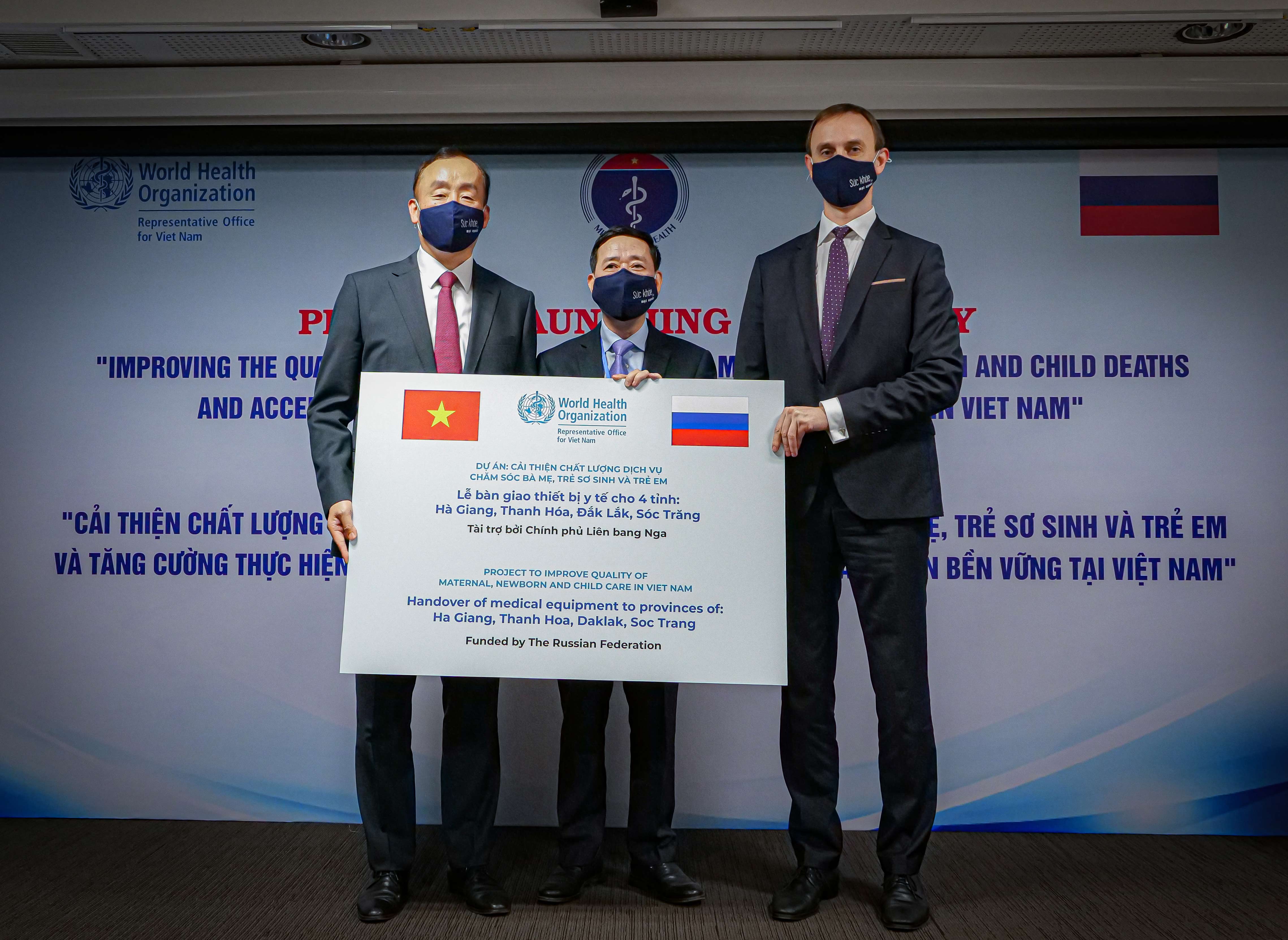28 October, Hanoi. Today, the Ministry of Health and the World Health Organization (WHO) in Viet Nam jointly launched a project on “Improving the Quality of Hospital Care to Reduce Maternal, Newborn and Child Deaths and Accelerate the Achievement of the Sustainable Development Goals Health Targets in Viet Nam”.
This project is supported by the Russian Federation and aims to end preventable maternal, newborn, and child mortality in four countries -- Kyrgyzstan, Mongolia, Tajikistan and Viet Nam.

Photo credit: WHO Viet Nam
“Improving quality of care for maternal, newborn and child health is a key priority in our National Program on Reproductive, Maternal, Newborn and Child Health period 2021-2025”, says Dr Nguyen Duc Vinh, Director of Maternal and Child Health Department, Ministry of Health. “The government has approved program on reducing child mortalities until 2030, with priorities given to remote and disadvantaged areas. We highly appreciate the timely support from Russian Federation and the World Health Organization to help us achieve our goal in improving maternal, newborn and childcare toward ending preventable death”.
Maternal and child health is an important health agenda of every country and although important progress has been made in the last two decades, globally each year, 295,000 women die as a result of pregnancy and childbirth, and 5.2 million children under five years old lose their lives. The vast majority of these preventable deaths occurred in low-resource settings.
The world leaders including Viet Nam has committed to ensure healthy lives and promote well-being for all at all ages, with targets set in reducing maternal and child mortality for 2030 agenda for sustainable development.
Viet Nam has made a remarkable progress in maternal, newborn and child health which has resulted in achieving some 2030 targets. However, there’s still a big gap between urban and remote areas. In 2019, infant mortality rates in rural areas, 16.7 per 1000 live births, was double compared to those of urban areas, 8.2. Maternal mortality rates in the mountainous and highland areas were 10 to 20 times higher than those in the urban areas.
“Effective interventions for improving maternal, newborn and child health should be strengthened especially at the grassroot and remote areas”, says Dr Kidong Park, WHO Representative in Viet Nam. “The World Health Organization will work closely with MOH to provide technical support for strengthening health service delivery for maternal, newborn and child health through introducing applicable model with evidence-based interventions”.
The WHO recognizes that improving quality of maternity, newborn and childcare and patient safety and closing the gaps in quality and accessibility of care is among the highest priorities to reduce preventable deaths and disability for mothers and children, helping the countries to meet the SDGs target.
In addition, the increasing burden of non-communicable diseases, including diabetes, hypertension and cancers, account for more than 70% of mortality and morbidity requires risk factors prevention and early detection at early stage of life, during pregnancy and infancy.

Photo credit: WHO Viet Nam
The project launched today will support in strengthening the health care system in delivering quality services for maternal, newborn and childcare in four selected provinces – Ha Giang, Thanh Hoa, Dak Lak and Soc Trang with priorities given to the remote and grassroot levels. The project will contribute to the achievements of SDG targets of Viet Nam.
